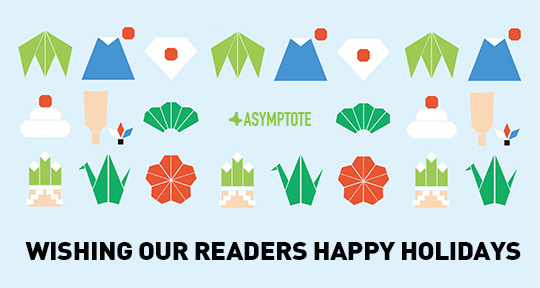Chances are that you’ve already heard of Bong Joon Ho’s history-making feat at the Oscars yesterday following our prediction in December, but did you know that it wasn’t so long ago that Bong was on a blacklist, along with some 10,000 filmmakers deemed to be critical of the South Korean administration, and those people were prevented from receiving arts funding? As the New York Times notes, Parasite is the first movie not in English in the Academy Award’s 92 years to take the top award; “in a post-‘Parasite’ world, the best-picture winner can come from anywhere.”
As we invite you to explore more of what South Korea offers to the world in our extensive archives (ranging from magical realist writing, experimental poetry, and the most inventive science fiction to surreal drama and playful Hangul text art—and including work by Burning director Lee Chang-dong), we hope you’ll also consider joining our mission to break down similar barriers in literature. By coincidence, we too do not receive arts funding, because the government of the country where we are incorporated does not consider our endeavor supportable. Take it from Eliot Weinberger, who has said, “Asymptote may be a small chisel and drill, but these things force cracks that, time and time again, have eventually brought the walls down.
Help us bring the walls down—become a sustaining or masthead member today.









